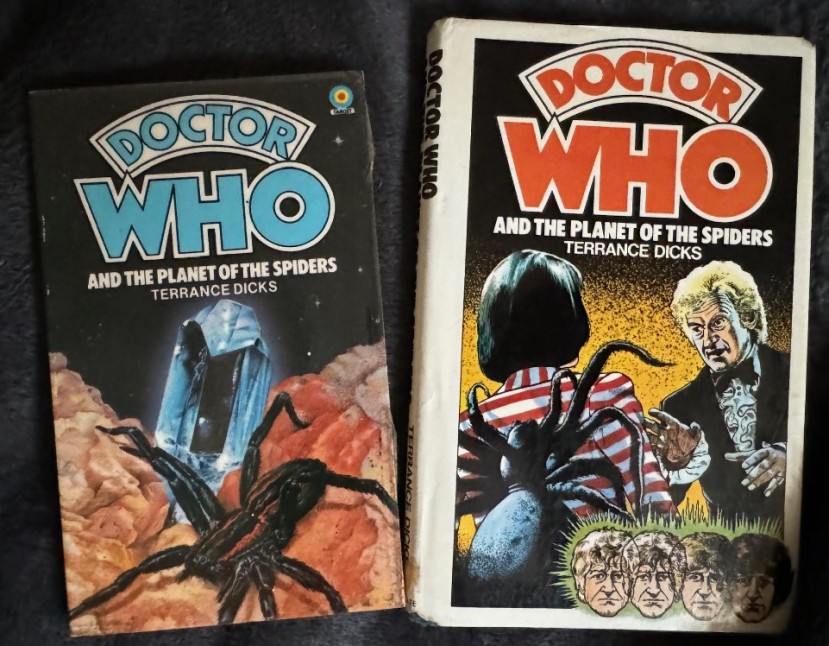Doctor Who And… 16: The Planet of the Spiders (16/10/1975)
Written by Terrance Dicks, based on Robert Sloman’s scripts for the 1974 TV serial.

This one starts well, with a great prologue set in the Amazon as Cliff and Jo Jones negotiate with a tribe spooked by the mysterious blue crystal the Doctor gifted Jo as a wedding present. Meanwhile, Mike Yates investigates odd goings on at a Buddhist retreat. It has the same feel as the prologues Russell T Davies crafted for his series finales, of old friends returning and old sins casting long shadows. Dicks makes more of the Doctor’s immediate motive for getting involved – he blames himself for the death of the psychic Professor Clegg, caught up in the return of the blue crystal which, the Doctor realises, he stole and used without taking the time to understand anything about.
However, as the novel progresses there are slight hints that Dicks is impatient with the material – which is rather thin on TV. He makes the long multi-vehicle chase scene gripping on the page, and gives Lupton a decent backstory, but the other members of the retreat, and the villagers of Metebelis Three, are barely characterised. The last half of the book is a straightforward, unembellished canter towards a regeneration that is a bit lacking in the emotion (and the lines about the Doctor facing his fear) that made the TV version so memorable. Instead, we’re given a summary of how the Brigadier mopped up the aftermath of the spider attack on the monastery.
There are some effectively gruesome additions about the Eight Legs: Spider Coronations are said to entail the ceremonial cannibalism of the previous Queen, and after they kill a raving Lupton, the Spider Council consumes his corpse. The Great One is an unsettling presence: “The Doctor felt the sudden pressure of a mind so powerful that it threatened to swallow up his own” and we’re starkly told that the price of her increased mental powers means “The Great One was mad.”
Aside from these horrific vignettes, there’s the occasional, characteristic pithy aside (such as a joke about the failure to provide any kind of disguise for the semi-secret UNIT HQ, as a wry comment on the huge signposts that frequently appeared onscreen), but overall this is a lesser work than Dicks’ earlier novelisations, and perhaps not quite the end of an era it should have been. Grade 4.

Next Time: Doctor Who And… The Three Doctors.
One comment